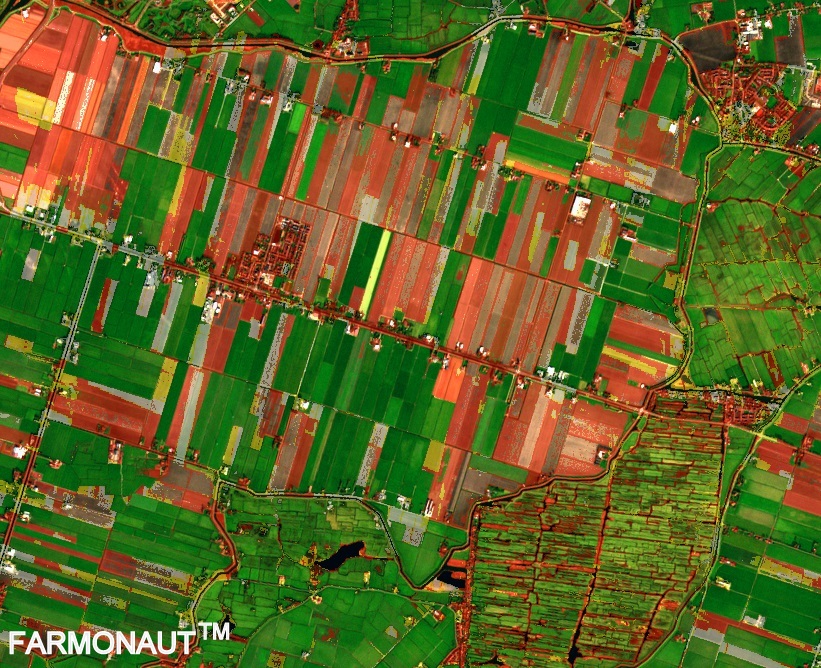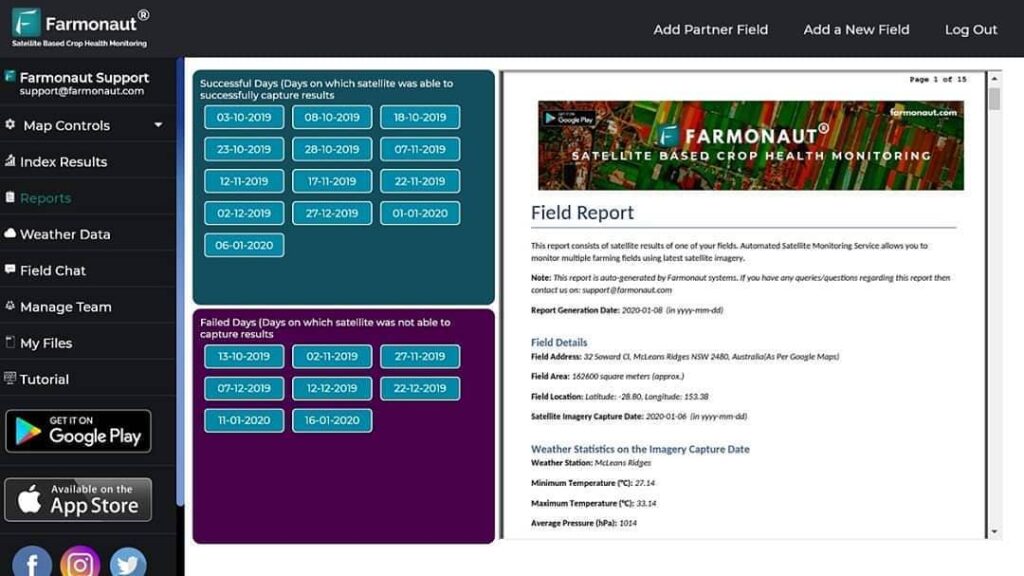Navigating Farm Business Transitions: Expert Guide to Sustainable Family Succession Planning

“Over 70% of family farms fail to successfully transition to the next generation due to inadequate succession planning.”
Welcome to our comprehensive guide on farm business transitions and sustainable family succession planning. As experts in agriculture and farm management, we understand the complexities and challenges that come with passing the torch to the next generation. In this blog post, we’ll explore the intricacies of family farm succession planning, offering valuable insights and guidance for those navigating this crucial decision.
Farm business transition and next generation farming are topics of utmost importance for agricultural families. The decisions made during this process can have long-lasting impacts on all parties involved, shaping the future of the farm and the family’s legacy. That’s why it’s essential to approach this transition with careful consideration, open communication, and a willingness to explore all available options.
The Importance of Farm Succession Planning
Succession planning is a critical aspect of ensuring the longevity and sustainability of family farms. It involves more than just transferring ownership; it’s about preserving knowledge, traditions, and values while also embracing innovation and adapting to changing agricultural landscapes.
- Preserves family farming legacy
- Ensures continuity of operations
- Minimizes potential conflicts
- Optimizes tax efficiency
- Facilitates smooth transition of knowledge and skills
By implementing a well-thought-out succession plan, families can navigate the complexities of transitioning farm businesses while maintaining harmony and ensuring the farm’s continued success.
Key Considerations in Farm Business Transitions
When embarking on the journey of farm business transition, there are several crucial factors to consider:
- Business Structure Evaluation: Assess the current farm business structure and determine if changes are necessary to facilitate a smooth transition.
- Financial Planning: Conduct a thorough financial analysis to ensure the farm’s viability and the retiring generation’s financial security.
- Legal Considerations: Address legal aspects such as property transfers, estate planning, and business agreements.
- Tax Implications: Consult with specialized accountants to optimize tax efficiency during the transition process.
- Skill and Knowledge Transfer: Develop a plan for transferring crucial farming skills and knowledge to the next generation.
By addressing these key areas, families can create a solid foundation for a successful farm business transition.
The Role of Technology in Modern Farming
As we discuss farm business transitions, it’s important to highlight the role of technology in modern agriculture. Innovative solutions like those offered by Farmonaut are revolutionizing the way farms are managed, providing valuable tools for both current farm leaders and the incoming generation.
Farmonaut’s satellite-based farm management solutions offer advanced crop health monitoring, AI-driven advisory systems, and resource management tools. These technologies can significantly enhance farm efficiency and productivity, making them valuable assets for the next generation of farmers.
Communication: The Cornerstone of Successful Transitions
Open and honest communication between current farm leaders and the incoming generation is crucial for a successful transition. This dialogue should address key considerations such as:
- Shared goals and vision for the farm’s future
- Roles and responsibilities during and after the transition
- Decision-making processes and authority
- Expectations and concerns from all parties involved
- Potential challenges and strategies to overcome them
By fostering an environment of trust and open communication, families can navigate the complexities of farm succession planning more effectively.
The Importance of Professional Guidance
Navigating farm business transitions can be complex, which is why seeking professional guidance is crucial. Specialized accountants, lawyers, and agricultural advisors can provide valuable insights and help families make informed decisions. These experts can assist with:
- Tax planning and optimization
- Estate planning strategies
- Business structure recommendations
- Financial analysis and projections
- Mediation and conflict resolution
Investing in professional advice can save families time, money, and potential conflicts in the long run.
Balancing Tradition and Innovation
One of the key challenges in farm business transitions is striking the right balance between preserving valuable traditions and embracing innovation. The incoming generation often brings fresh ideas and a willingness to adopt new technologies, while the current leaders possess invaluable experience and time-tested practices.
To achieve this balance, consider the following approaches:
- Encourage open dialogue about new ideas and potential changes
- Implement pilot programs to test innovative practices on a small scale
- Gradually integrate new technologies alongside traditional methods
- Document and preserve valuable traditional knowledge
- Foster a culture of continuous learning and adaptation
By finding the right balance, farms can honor their heritage while positioning themselves for future success.

“Effective farm succession planning can increase agricultural business longevity by up to 30 years on average.”
Creating a Sustainable Farming Legacy
A well-executed farm business transition not only ensures the continuity of operations but also lays the foundation for a sustainable farming legacy. To achieve this, consider the following strategies:
- Environmental Stewardship: Implement sustainable farming practices that protect and enhance the land for future generations.
- Community Engagement: Foster strong relationships with the local community and agricultural organizations.
- Diversification: Explore opportunities to diversify farm operations to increase resilience and profitability.
- Education and Training: Invest in ongoing education and training for all family members involved in the farm.
- Succession Mentality: Cultivate a mindset that views succession as an ongoing process rather than a one-time event.
By focusing on these areas, families can create a lasting legacy that extends beyond mere asset transfer.
Leveraging Technology for Farm Management
As we look towards the future of farming, it’s clear that technology will play an increasingly important role in farm management. Solutions like Farmonaut offer powerful tools that can benefit both current and future farm leaders.
Farmonaut’s satellite-based crop health monitoring and AI-driven advisory systems can help farmers make data-driven decisions, optimize resource usage, and improve overall farm efficiency. By incorporating these technologies into succession planning, families can ensure their farms remain competitive and sustainable in the long term.
Farm Succession Planning Checklist
To help you navigate the complex process of farm succession planning, we’ve created a comprehensive checklist. This table outlines key steps and considerations for a successful transition:
| Planning Stage | Action Item | Completion Status | Notes |
|---|---|---|---|
| Initial Assessment | Evaluate current farm business structure | [ ] | |
| Successor Identification | Assess potential successors and their readiness | [ ] | |
| Communication | Initiate open dialogue with family members | [ ] | |
| Role Definition | Define roles and responsibilities for all parties | [ ] | |
| Financial Planning | Conduct asset valuation and financial analysis | [ ] | |
| Legal Considerations | Review and update legal documents | [ ] | |
| Tax Planning | Consult with specialized accountants | [ ] | |
| Knowledge Transfer | Develop training and mentorship programs | [ ] | |
| Timeline Development | Create a phased transition timeline | [ ] | |
| Contingency Planning | Prepare for unexpected events or changes | [ ] |
Use this checklist as a guide to ensure you’re addressing all crucial aspects of your farm succession plan.
The Role of Artificial Intelligence in Agriculture
As we look to the future of farming, it’s clear that artificial intelligence (AI) will play an increasingly important role. AI technologies can help farmers make more informed decisions, optimize resource usage, and improve overall farm efficiency.
Farmonaut’s AI-driven advisory system, for example, provides personalized recommendations based on satellite imagery, weather data, and other inputs. This technology can be particularly valuable for the next generation of farmers, helping them make data-driven decisions and continue the farm’s success.
Addressing Common Challenges in Farm Succession
Farm succession planning often comes with its share of challenges. Here are some common issues families may face and strategies to address them:
- Multiple Interested Successors: Develop clear criteria for leadership roles and consider alternative roles or divisions of responsibilities.
- Differing Visions: Facilitate open discussions to find common ground and create a shared vision for the farm’s future.
- Financial Constraints: Explore creative financing options and phased transitions to manage financial pressures.
- Emotional Attachments: Acknowledge emotional ties to the farm and work with a mediator if necessary to navigate sensitive discussions.
- Lack of Interest from Potential Successors: Consider alternative succession options, such as transitioning to non-family members or exploring partnerships.
By proactively addressing these challenges, families can increase their chances of a successful farm business transition.
The Future of Farming: Embracing Technology and Innovation
As we navigate farm business transitions, it’s crucial to consider the role of technology and innovation in shaping the future of agriculture. The next generation of farmers will need to be adept at leveraging cutting-edge tools and techniques to remain competitive and sustainable.
Farmonaut’s web app, for example, allows farmers to search for and track their farms using satellite imagery, providing valuable insights into crop health and field conditions. By incorporating these technologies into succession planning, families can ensure their farms remain at the forefront of agricultural innovation.
For those interested in exploring Farmonaut’s API capabilities, you can find more information in their API Developer Docs.
Conclusion: Building a Resilient Agricultural Future
Navigating farm business transitions and implementing sustainable family succession planning are critical steps in ensuring the longevity and success of agricultural enterprises. By embracing open communication, leveraging professional guidance, and balancing tradition with innovation, families can create a strong foundation for the next generation of farmers.
Remember that succession planning is not a one-time event but an ongoing process that requires regular review and adjustment. By staying proactive and adaptable, farm families can build resilient businesses that thrive for generations to come.
As you embark on your farm succession journey, consider how technologies like those offered by Farmonaut can support your efforts. From satellite-based crop monitoring to AI-driven advisory systems, these tools can help both current and future farm leaders make informed decisions and optimize their operations.
Frequently Asked Questions
- When should we start planning for farm succession?
It’s never too early to start succession planning. Ideally, begin the process 5-10 years before the anticipated transition to allow ample time for preparation and adjustment. - How can we ensure fair treatment of all family members in the succession plan?
Open communication, clear expectations, and professional mediation if needed can help ensure fairness. Consider both on-farm and off-farm assets in your planning. - What role do non-farming family members play in succession planning?
Non-farming family members should be included in discussions to maintain family harmony. Their interests and concerns should be addressed, even if they’re not directly involved in farm operations. - How can we incorporate new technologies into our farm succession plan?
Evaluate current and emerging technologies that could benefit your farm. Consider training programs for the next generation and gradual implementation of new systems. - What legal documents are essential for farm succession planning?
Key documents may include wills, trusts, partnership agreements, and buy-sell agreements. Consult with a legal professional to ensure all necessary documents are in place.
By addressing these common questions and following the guidance provided in this blog post, you’ll be well-equipped to navigate the complexities of farm business transitions and create a sustainable legacy for your agricultural enterprise.



















